Best Decaf Teas to Try
If you are trying to avoid caffeine but still want to enjoy the benefits and flavor of real tea, decaf tea may be a solution. But not all decaf teas were made the same. Learn more about decaf teas and find out what are the best decaf teas to try.
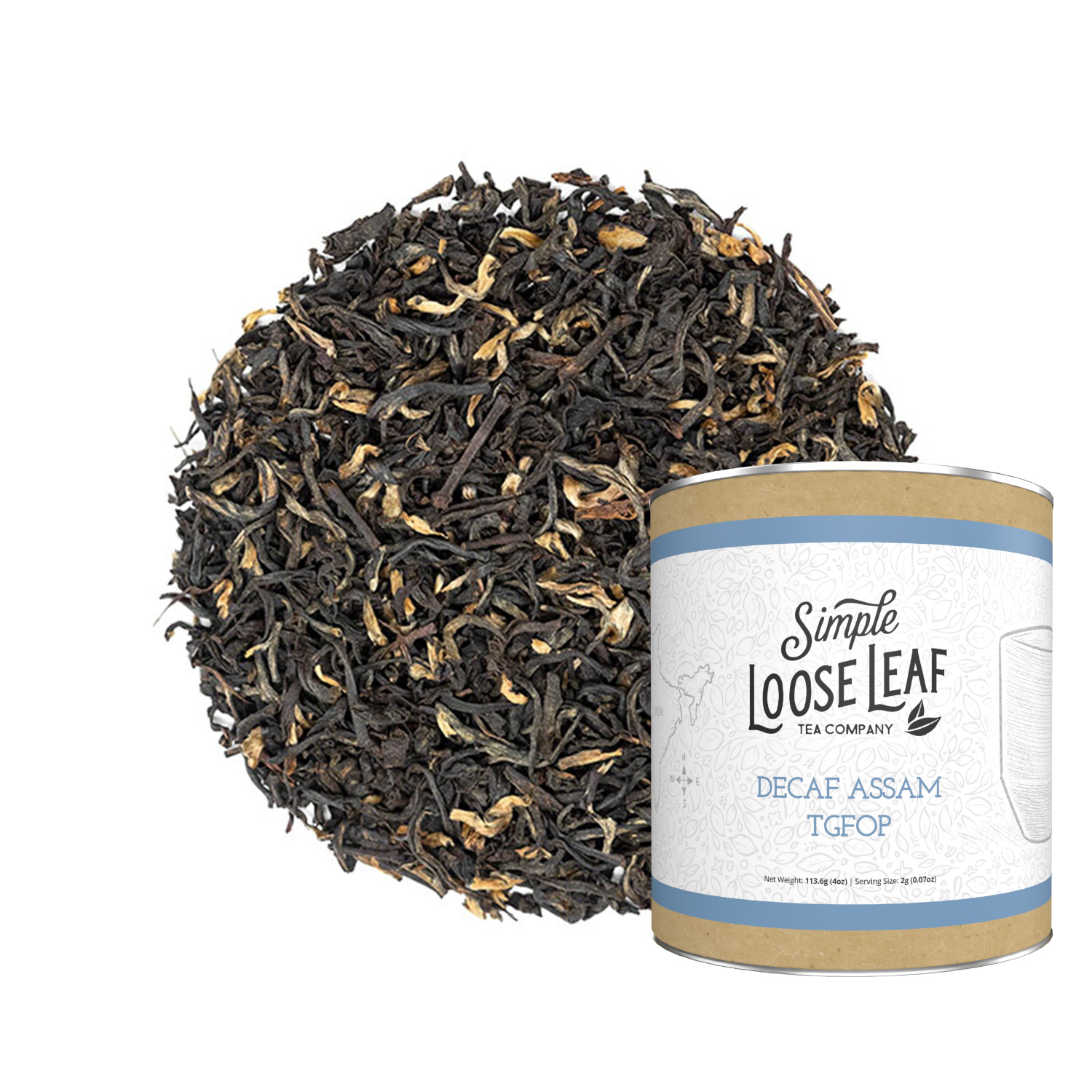
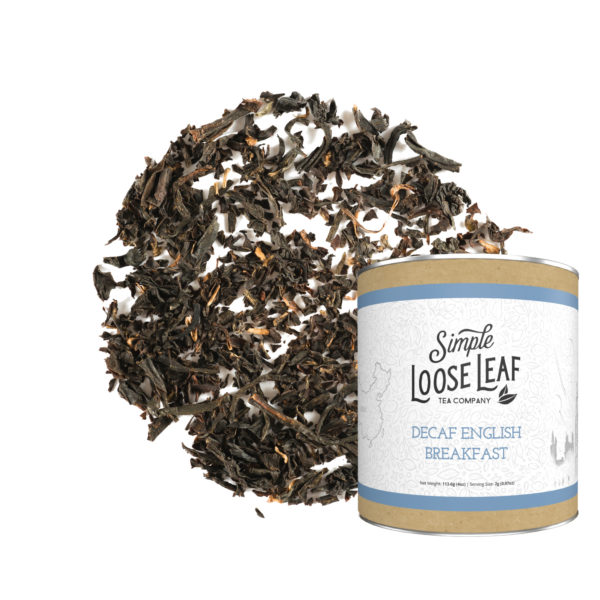
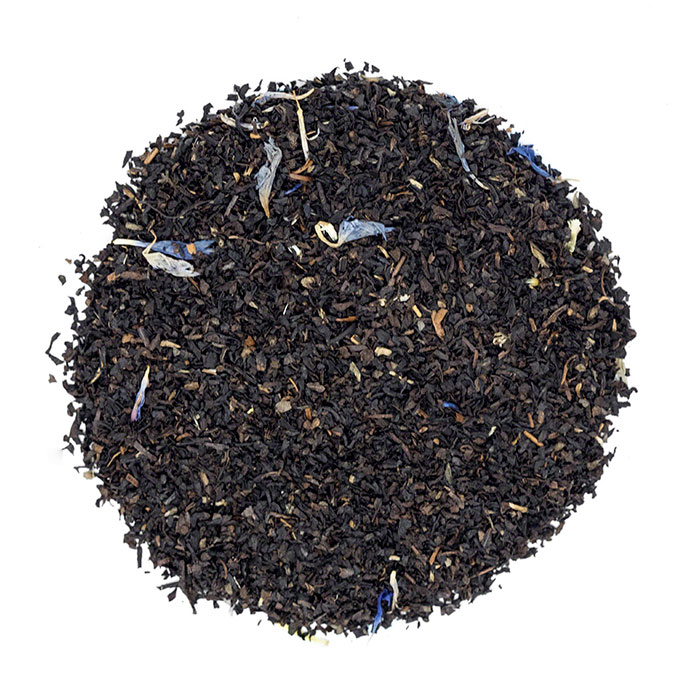
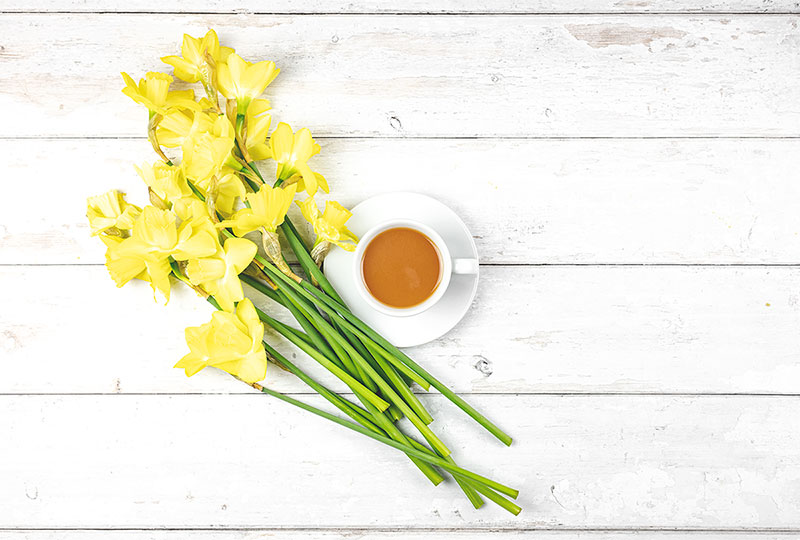 Irish Cream decaf tea with milk
Irish Cream decaf tea with milk
What is decaffeinated tea?
Decaf tea is a naturally caffeinated tea that underwent the process of decaffeinated to remove nearly 100% of caffeine from tea leaves. Decaf tea is not the same as caffeine-free tea. Caffeine-free tea is naturally caffeine free and doesn’t need to undergo any decaffeination processes. Most herbal teas are caffeine free, with a few exceptions such as Yerba Mate, Guayusa and Yaupon mostly available as loose leaf tea, and guarana that’s usually available as powder, and sometimes added to some tea blends too. Therefore, decaf tea will always contain a very, very small amount of caffeine, while caffeine-free tea will have none.How much caffeine is in decaf tea?
Decaf teas usually have less than 2% of caffeine of the initial amount. FDA regulations say that decaf drinks should contain less than 2.5% of their original caffeine content. That means that teas that are naturally high in caffeine will have a higher caffeine content once they are decaffeinated, compared to teas that are naturally low in caffeine. Let’s look at a very interesting hypothetical example.Matcha vs Tencha tea
For example, matcha has around 30 mg of caffeine per 1 gram of tea powder. It’s made from shaded green tea leaves. Before being ground using a stone mill, these leaves are called tencha. Tencha too, will have around 30 mg of caffeine per 1 gram of dry leaf. When making a cup of matcha, you would use about 2 grams of tea powder. That could mean that your decaf tea would have around 1.5 mg of caffeine. But if you brew 2 grams of tencha tea, it will have even less – because not all caffeine from tencha will be extracted into your cup.Matcha vs Assam tea
But, if we use one more tea as an example, such as Assam orange pekoe grade, which will have around 20 mg of caffeine per gram of dried leaf[1], you may get a much stronger cup of tea. For example, if you use around 3 grams of tea leaves, you may potentially extract 60 mg of caffeine. Use 4 grams, and that amount will go up to 80 mg per cup. That means that 3 grams of decaf Assam dry loose leaf may also have 1.5 mg of caffeine in total. However, a cup of brewed decaf Assam tea made with 3 grams of tea leaves will actually have less caffeine than a bowl of decaf matcha. Why? Because Assam tea, just like tencha, is brewed and not dissolved like matcha. That means you will not extract whole 60 mg from 3 grams of tea leaves. Therefore, if you are still worried about caffeine content in your decaf tea, simply use less tea leaves and don’t oversteep them. Furthermore, it’s possible that tea dust in tea bags contains more caffeine than loose leaf tea. Studies showed that in Assam tea, dust may contain 10 mg[2] of caffeine more than orange pekoe tea per gram of tea leaf. However, there are less decaf green teas than decaf black teas, and neither tencha nor matcha are commonly decaffeinated. We will come back to that a bit later.Caffeine free vs decaf teas
You may ask, if there are naturally caffeine free teas, why would you choose a decaf tea instead? The answer is simple – because of flavor and benefits. All decaf teas are made from Camellia sinensis tea plant. This plant has a unique chemical composition. White, yellow, green, oolong, black and dark teas are all made from Camellia sinensis plant, but undergo different growing, harvesting and processing methods which will ultimately change the chemical composition of tea leaf too. That’s why some teas are richer in caffeine, some are richer in EGCg, a potent catechin that may provide numerous health benefits, and some may have high L-theanine content. For example, both EGCg and L-theanine are abundant only in Camellia sinensis. If you want to include EGCG into your diet, white and green tea will be the best teas to drink. They both contain caffeine, sometimes even more than black tea. But if you choose a naturally caffeine free tea such as rooibos, it won’t contain any caffeine, but you won’t be getting any EGCG either. Rooibos, however, has different antioxidants, that may provide a myriad of benefits too. That’s why decaffeination is important. Decaf teas will still provide health benefits, but with a negligible amount of caffeine.What qualities should I look for in a good decaf tea?
When opting for a decaf tea, it’s important to know how it was made. Teas can be decaffeinated using different decaffeination processes. For a long time, decaf teas have been having a bad reputation of being not as healthy as non-decaffeinated tea, and even potentially dangerous. That’s because there are several decaffeination processes that include chemical solvents such as methylene chloride or ethyl acetate. But they can be decaffeinated using carbon dioxide or water too. Furthermore, up until recently many tea drinkers didn’t like the flavor of decaf teas, as it was different from the regular tea. However, technologies developed, allowing tea to be decaffeinated not only in a safe way, but by preserving most of the nutrients and natural flavor. This technique is called CO2 decaffeination. The fourth decaffeination method, the water extraction, is used much less for tea than it is for coffee, because although it’s very safe, it may wash out not only the caffeine, but flavor too. Methods using solvents may significantly impact the flavor in different ways. Just like any other tea, high-quality decaf tea should have pretty leaves. Many of them will be broken, but they shouldn’t look stale. Decaf tea should smell pleasant too, just like all non-decaf teas. The best decaf teas will be decaffeinated using the best possible available methods that preserve flavor and benefits. They should taste just like any other quality tea. Read more about decaf teas here.Best Decaf Teas
Most decaffeinated tea is black, and unlike with green tea, there are several types to choose from – from decaf Ceylon teas to decaf Assam and decaf Darjeeling. The reason could be that decaffeination processes that are the most commonly used are difficult to use with green tea. For example, if leaves are soaked in a very hot, boiling water during decaffeination, leaves are much easier to get ruined. Green teas are very delicate, and once you scorch or ruin the leaves, there is no going back. Decaf oolong and white tea are available too, but they are not as common as black decaf teas, or even green decaf teas.Best Decaf Green Tea
1. Decaf Sencha
Sencha is one of rare green teas that available in decaf style, with a few more, usually generic options. Sencha is a traditional Japanese green tea. It’s steamed and has a grassy, vegetal refreshing flavor.2. Decaf Jasmine green tea
The other available type of decaf green tea is a popular jasmine scented tea. Traditional jasmine scented green tea is tea with a strong green tea base, naturally scented with fresh jasmine blossoms. Check the label of a decaf blend to find out what are the exact ingredients and how it was made.Best Decaf Black Tea
3. Assam TGFOP tea
Assam tea is one of the best decaffeinated black teas. It has a unique malty note, and strong and bold flavor. Your decaf Assam tea should be full bodied and strong enough to be served with milk.
Decaf Assam black tea
4. English Breakfast tea
Decaf English Breakfast tea is one of the most popular decaf teas in the world. When it’s hard to imagine a breakfast without a cup of smooth and bold black tea. English Breakfast is a blend of different teas, usually Assam, Darjeeling, Kenyan and Ceylon teas. It you want to avoid caffeine but still enjoy a bold and full-bodied cup, this tea is a great choice.
Decaf English Breakfast black tea blend
Best Flavored Decaf Tea
5. Acai Berry Black
Slightly sweet and deep – this caffeine-free black tea blend is so full-bodied that you can drink it with a little whipped cream instead of regular milk and turn it into a yummy tea dessert. Suitable for any time of the day or night.
Acai Berry flavored black tea
6. Irish Cream black tea
If you want to see how smooth, delicious and full-bodied decaf tea can be, Irish Cream is an amazing decaf option. It’s slightly sweet, bold and smooth. Instead of the bitterness, you can expect a light vanilla note, gently wrapping black tea into a delicious creamy treat. Goes well with milk and sugar. Irish Cream decaf tea with milk
Irish Cream decaf tea with milk
Best Caffeine Free Tea
7. Rooibos
If you want your cup of tea to provide antioxidants too, but don’t want to drink decaf teas, rooibos may be a great alternative. It is abundant in antioxidants and may provide many health benefits. Rooibos tea is available in hundreds of flavors and can be brewed in any possible way you can imagine – from lattes to iced teas.8. Honeybush
Honeybush is something like a rooibos sweeter relative. It looks very similar to rooibos, but it has a less earthy and slightly sweeter flavor. It may provide many benefits and may be used for making delicious caffeine free blends.Disclaimer: This article is for informational purposes only. It’s not intended to replace medical advice, diagnosis or treatment. Every person is different and may react to different herbs and teas differently. Never use teas or herbs to treat serious medical conditions on your own. Always seek professional medical advice before choosing home remedies.
References:
[1] https://www.ncbi.nlm.nih.gov/pmc/articles/PMC5380613/ [2] https://www.ncbi.nlm.nih.gov/pmc/articles/PMC5380613/
More from:
SLL


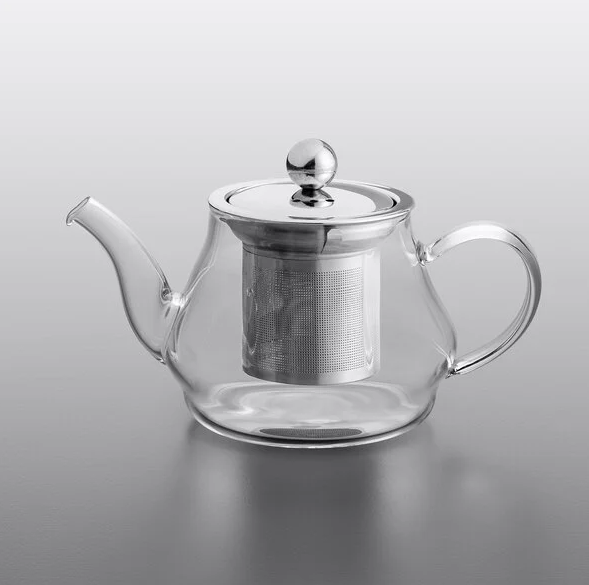
Leave a comment